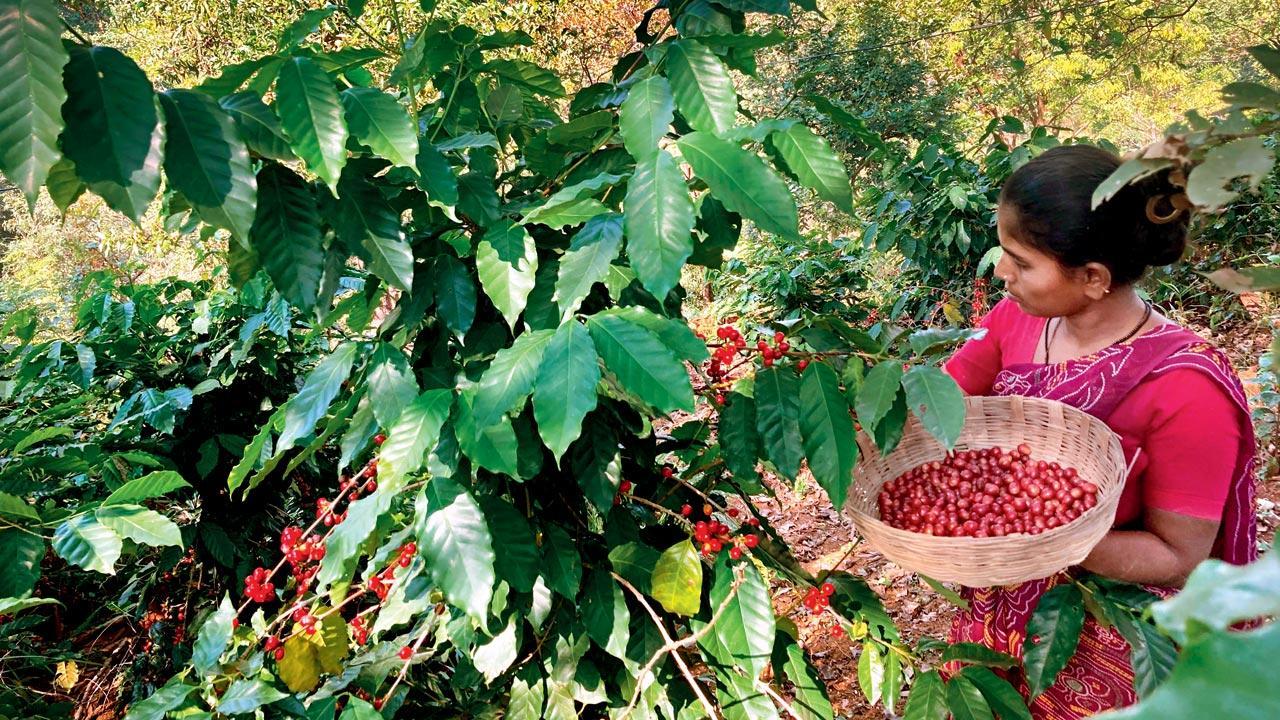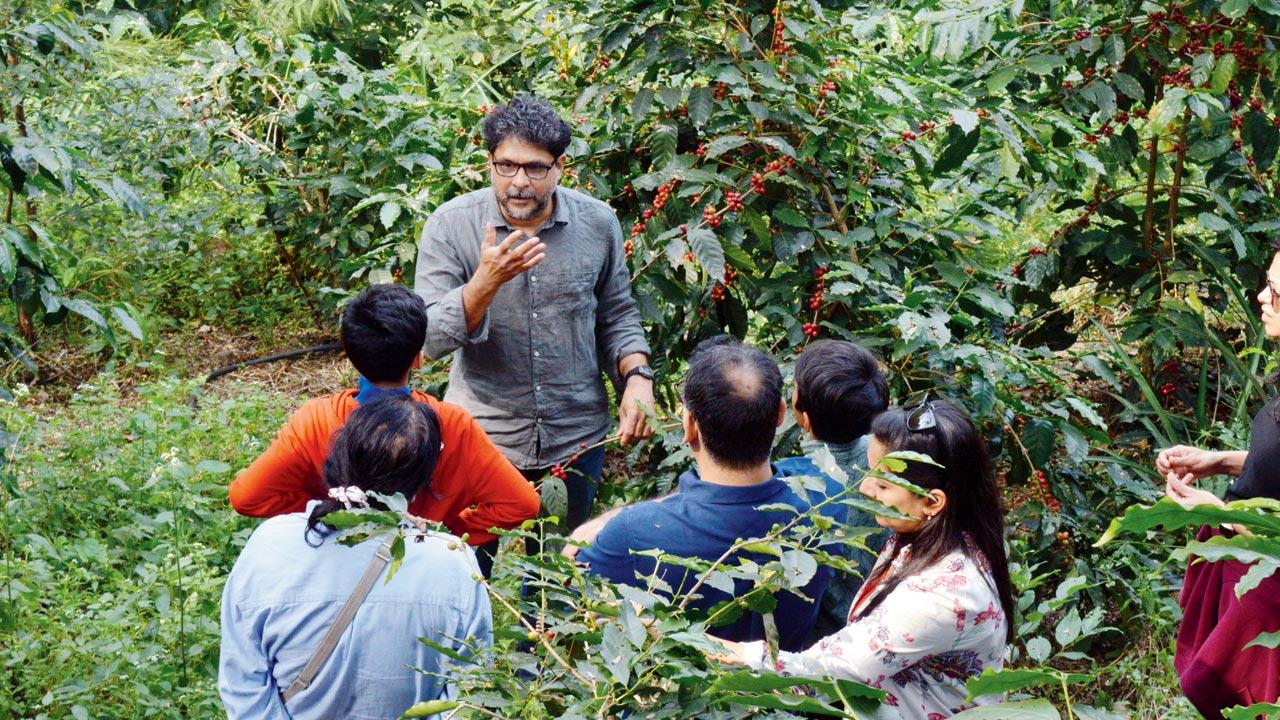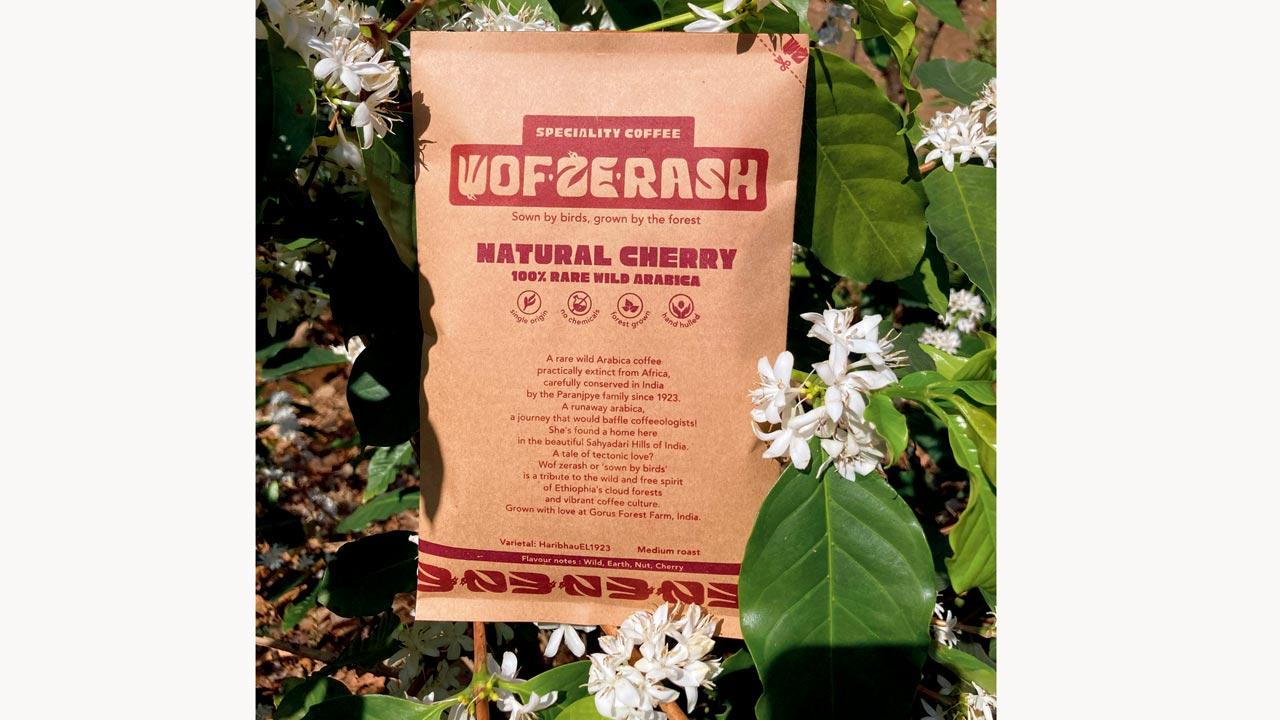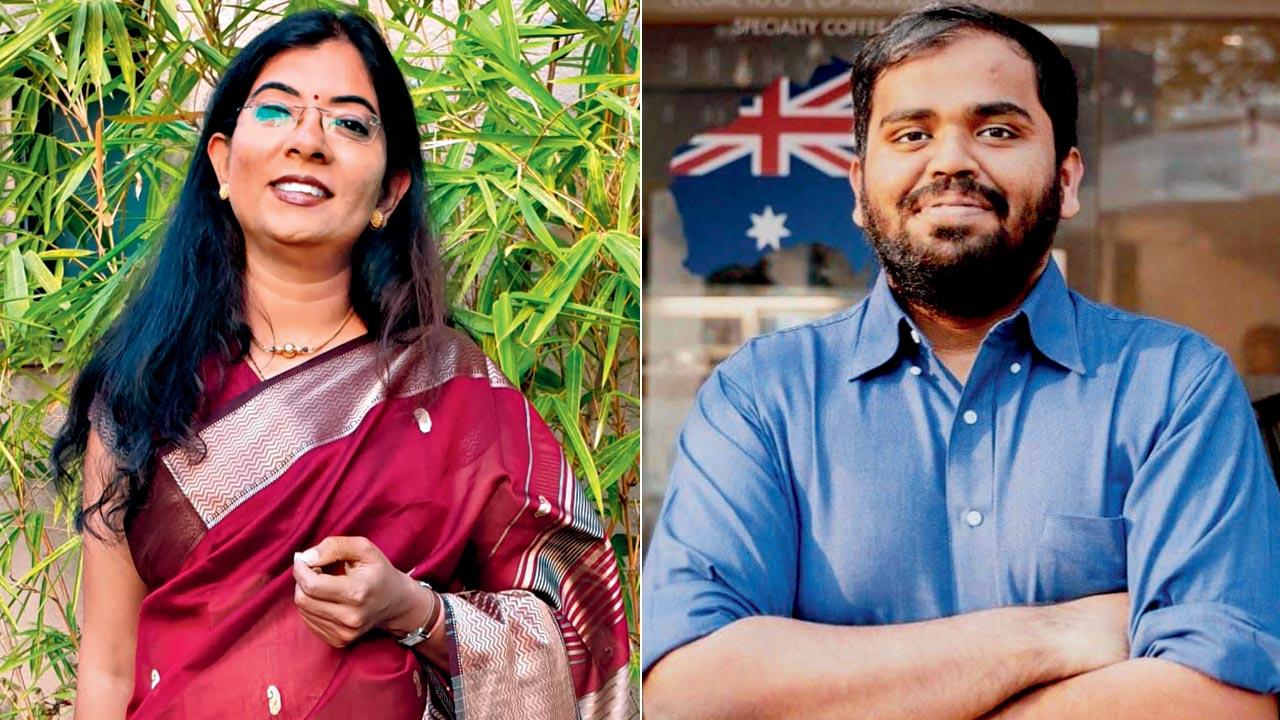One large plantation, a few small farms—Maharashtra has been farming coffee for decades. But, when will coffee from the state hit our shelves?

A coffee plantation worker collects berries at Gorus Forest Farm
In Chikhaldara, a coffee plantation spans across a hundred acres, thriving for decades—first planted by British officers and later, by the Roman Catholic Mission. Yet, you won’t see its coffee make its way to specialty coffee shops across Maharashtra.
ADVERTISEMENT
The common perception of coffee in India is that it can only be grown in South India. But farmers and landscape designers are experimenting with the crop. The result: small but lush plantations.
Maharashtra’s coffee began to grow all thanks to an experimental lot. In Chikhaldara, English officer James Mulheran brought coffee plants from Kerala and planted them first at his bungalow. Between 1860-61, the coffee took root. Later, Father Thevnet, who started the Roman Catholic Mission in 1897-98, saw coffee
as a means to generate employment and developed the plantation by 1910.

Like Chikhaldara, around 1996-97, Krushibhusan Shri Tukaram Pundlikrao Borade first experimented with coffee on his farm in Nashik. It wasn’t an impulse decision but a carefully planned one. Borade spent years growing a forest cover with Silver Oak trees. The shade from the trees offered exactly what coffee plants need to grow. Other plants were sown too, mainly black pepper, and pineapples. As the seven-acre big plantation thrived, it made Borade a pioneer in developing a multi-crop pattern in Maharashtra.
Using Silver Oak Farm as a case study, Swati Aringale, a landscape designer and Borade’s niece-in-law is currently working on a farm in Karjat and has sown the coffee seeds. She plans to add a processing unit on-site as well. Previously, she has successfully grown coffee at a private farm in Kamshet.
In Mulshi, Ashwin Paranjpe, an organic farmer and founder of Gorus Forest Farm grows coffee and packs it for retail under his label, Wof Zerash. Paranjpe’s parents bought a 10-acre piece of hilly land in 2002, and the seeds for his coffee plantation came from his great-grandfather and grandmother. His great-grandfather, Haribhau Paranjpe, was a botanist who worked as a horticulture officer with the Bombay Presidency and had been deputed to Mesopotamia in 1919. Upon his return to India, he brought back a few Arabica seeds that he sowed in his backyard. Those coffee saplings lent seeds that were planted at Ashwin’s grandmother’s home in Pune. It is seeds from these plants that were eventually sown at Gorus Forest Farm.

At first, Paranjpe planted 150 coffee seedlings at the farm. Later, he noticed that the birds in the forest started liking the sweet coffee cherries which matured in December and January. “They would select the best and sweetest coffee cherries, eat the sweet pulp and the seed would pass through their gut and drop on the forest floor,” he says. The following September, Paranjpe noticed numerous tiny seedlings of coffee sprouting on the forest floor. He collected them, put them in nursery bags filled with a mixture of forest soil and cow-dung manure, and planted them the following monsoon. “The seedlings that grew from the coffee cherries eaten by birds exhibited exceptional vigour after germination and were very healthy,” he says. Paranjpe, by now, had researched the origin of the coffee plants he had, which led him to discover that this variety of coffee came from the Kafa region of Ethiopia where birds had first sown the coffee. Naturally, when naming the coffee brand, he chose Wof Zerash—a special phrase in the Ethiopian language, Kafi Noonoo, that means “sown by birds”.
But how is it possible for coffee to grow in the state, seeing as the climate is different from that of South India? Aringale explains, “To grow coffee, you need two things. One, a protected forest cover. And two, under that cover, one needs topsoil mulching. In most of these regions now, the rock has been weathered and the topsoil has just gone away. So, one has to look at the topsoil very closely to get that plantation thriving.” She adds that for coffee and most other plants that thrive under a forest cover, the topsoil needs mulching. Farmers use mulch (a layer of materials like grass clippings, straw, and bark chips) to cover the top layer of soil to help it retain its moisture and improve fertility.
While this is more or less achievable, Aringale says that the biggest challenge is Maharashtra’s climate—especially in the Maval region. Arabica coffee trees need a canopy of trees creating shade, high relative humidity, and an ideal temperature range of 22-260C. Paranjpe says, “It is obvious that our climatic conditions are far from ideal for growing Arabica coffee, and thus, one would expect that this plant will not grow well in Maharashtra. On the contrary, our experience has shown us that we can grow excellent Arabica coffee in the Northern side of Western Ghats of Maharashtra.” Naturally, some measures have to be taken to ensure that the coffee plantation thrives as one can’t simply rely on the monsoon.
 Pic/iStock
Pic/iStock
“It is necessary to provide supplementary irrigation to the coffee plants through a hose pipe and ground-mounted sprinklers, as well as increase the humidity of the air by using micro-sprinklers during summer,” adds Paranjpe.
If Maharashtra’s coffee is thriving, why is it missing from specialty coffee shops in the country? The answer is simple: A lack of knowledge of coffee processing methods. Despite how expansive the plantation in Chikhaldara is, the coffee from there is retailed for filter kaapi or as green beans only (without roasting). “At Chikhaldara, we mostly grow Arabica coffee and it’s sent across Maharashtra to Nashik, Pune, Nagpur, and other cities. But at our retail shop, when people visit, we’ve been seeing an increasing demand for green coffee as it helps with weight loss”, says Sunil Jambekar, a manager at the plantation.
At Silver Oak Farms too, Aringale says they have mostly retailed coffee for the South Indian filter. Jaykrut Shah, barista trainer corporate at Coffee By Di Bella says, “Maharashtra farmers first need to be educated on fermentation and processing coffee. Only then will they be able to offer specialty coffee. In the South, the state governments have provided that education to farmers decades ago, which is why you will see coffee from South Indian estates at specialty coffee shops.”
 Swati Aringale and Jaykrut Shah
Swati Aringale and Jaykrut Shah
Arigale says that the focus on sugarcane and paddy farming is so high in Maharashtra that most other crops are ignored. “We can have native planting like Indian timber, sheesham, or Mahua— all of these offer a brilliant forest cover. These will form amazing mulch in the topsoil of the forest cover bed. And then you can have coffee underneath and other creeper varieties. Also, we need flowering varieties because a lot of chemical farming is leading to pollinators becoming extinct,” she says.
Another reason why Maharashtra’s coffee is not highly commercialised is because of the yield it offers. Speaking about his farm, Paranjpe says, “We do not use any chemicals and provide minimal irrigation and pruning, so our yields are as low as 80-90 kg of green beans per acre, which is about 20 per cent of the yields obtained in commercial coffee plantations in South India. The yield of our coffee may be very low, but its quality characteristics are excellent and our coffee has consistently scored 85-87 points on the Q-grading scale.” Paranjpe’s specialty coffee, Wof Zerash, is perhaps one of the only specialty coffees you can access that’s grown in Maharashtra. That is until Aringale’s farm in Karjat begins to yield coffee and she sets up a processing unit.
“Maharashtra is still five to 10 years away from producing specialty coffee. It will take some government efforts to teach new practices. Then specialty coffee from the state can come into the market,” says Shah. Is anyone listening?
 Subscribe today by clicking the link and stay updated with the latest news!" Click here!
Subscribe today by clicking the link and stay updated with the latest news!" Click here!







